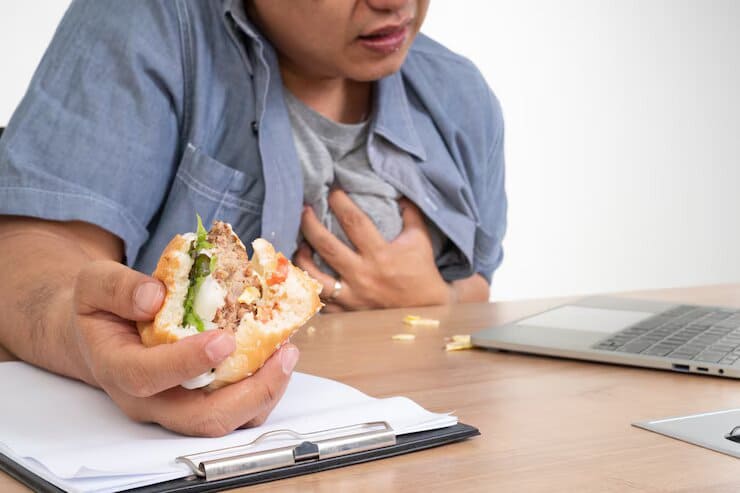Heart Attack: What to Eat and Avoid

When it comes to heart health, every matters. Whether you’re looking to prevent a heart attack or are recovering from one, your diet plays a crucial role. Let’s explore what you should eat and avoid to keep your heart in tip-top shape.
Understanding Heart Attacks
Before diving into the food specifics, it’s essential to understand what a heart attack is. A heart attack occurs when blood flow to a part of the heart is blocked, often by a buildup of fat, cholesterol, and other substances. Keeping this in mind, our dietary choices can significantly impact heart health, either positively or negatively.
What to Eat
Fruits and Vegetables
Eating a rainbow of fruits and vegetables can be your heart’s best friend. Packed with vitamins, minerals, and fiber, these colorful foods can help lower blood pressure and reduce cholesterol levels.
- Examples: Apples, oranges, kale, spinach, and bell peppers
Pro Tip: Aim for at least 5 servings a day. Try having a fruit smoothie for breakfast or a veggie-packed salad for lunch.
Whole Grains
Whole grains are a great source of fiber and can help improve cholesterol levels as well as lower the risk of heart disease.
- Examples: Oatmeal, brown rice, quinoa, and whole-wheat bread
Pro Tip: Swap refined grains with whole grains. Instead of white bread, choose whole grain bread.
Lean Proteins
Lean proteins are essential for building and repairing tissues but also crucial for a heart-healthy diet.
- Examples: Skinless poultry, fish, legumes, and tofu
Pro Tip: At least twice a week, opt for fish rich in omega-3 fatty acids like salmon or mackerel.
Nuts and Seeds
Nuts and seeds are tiny powerhouses of nutrients. They’re rich in omega-3 fatty acids, fiber, and protein.
- Examples: Almonds, walnuts, chia seeds, and flaxseeds
Pro Tip: A handful of nuts a day can be a great snack. Just be mindful of portion sizes because nuts are calorie-dense.
Healthy Fats
Not all fats are harmful. Healthy fats can reduce bad cholesterol levels (LDL) and increase good cholesterol levels (HDL).
- Examples: Avocado, olive oil, and fatty fish
Pro Tip: Use olive oil for cooking instead of butter or margarine.
What to Avoid
Saturated and Trans Fats
Saturated and trans fats can raise your bad cholesterol levels, leading to plaque buildup in your arteries, which can cause a heart attack.
- Examples: Red meat, full-fat dairy products, butter, and fried foods
Pro Tip: Replace butter with olive oil or avocado spread and opt for lean cuts of meat.
Excessive Salt
Too much salt can lead to high blood pressure, which is a significant risk factor for heart attacks.
- Examples: Processed foods, canned soups, and fast food
Pro Tip: Check food labels and aim to consume no more than 2,300 milligrams of sodium per day. Better yet, try using herbs and spices to flavor your food instead of salt.
Sugary Foods and Beverages
High sugar intake is linked to obesity, inflammation, and high cholesterol levels—factors that can increase the risk of heart disease.
- Examples: Sodas, candy, pastries, and sugary cereals
Pro Tip: Replace sugary snacks with fruits. Instead of soda, go for water or herbal tea.
Red and Processed Meats
These meats are often high in saturated fats and salt, which can harm your heart health.
- Examples: Bacon, sausages, and deli meats
Pro Tip: Opt for plant-based proteins like beans or lentils a few times a week.
Conclusion
Your heart works tirelessly for you, so it’s crucial to take good care of it through your diet. By choosing fruits, vegetables, whole grains, lean proteins, nuts, seeds, and healthy fats, you’ll be well on your way to a healthier heart. And remember, avoiding saturated fats, excessive salt, sugary foods, and processed meats can make a world of difference.
“The journey to a healthier heart is paved with small, mindful choices. Every meal is an opportunity to nourish yourself and support your heart.”
Whether you’re recovering from a heart attack or aiming to prevent one, these dietary tips can guide you on your path to heart health. Start small, be consistent, and your heart will thank you!